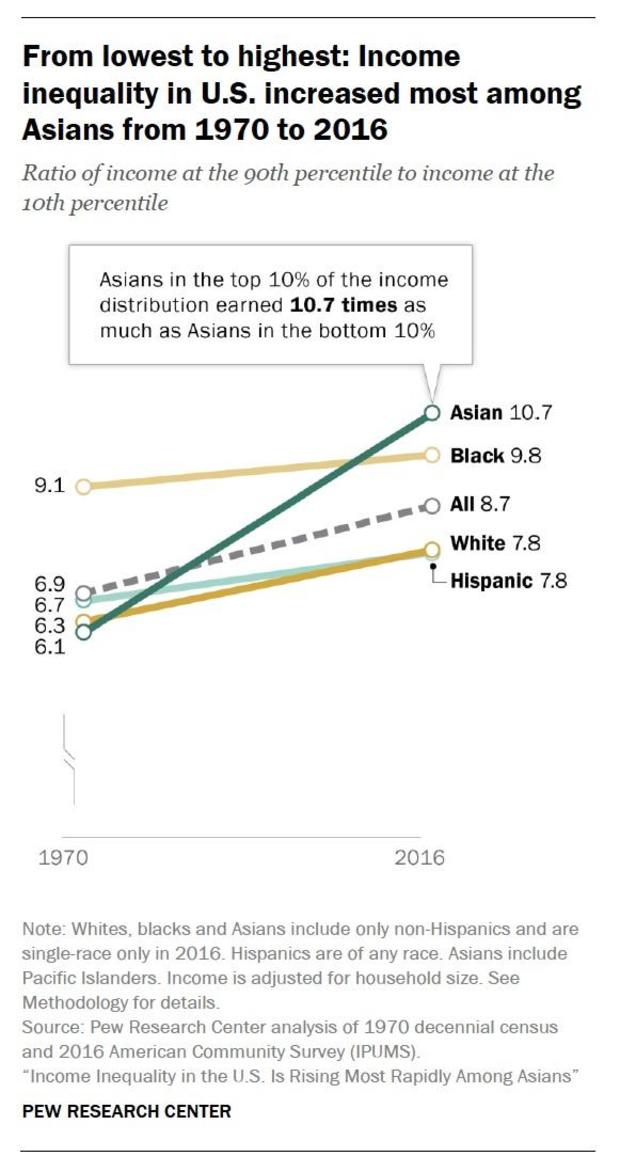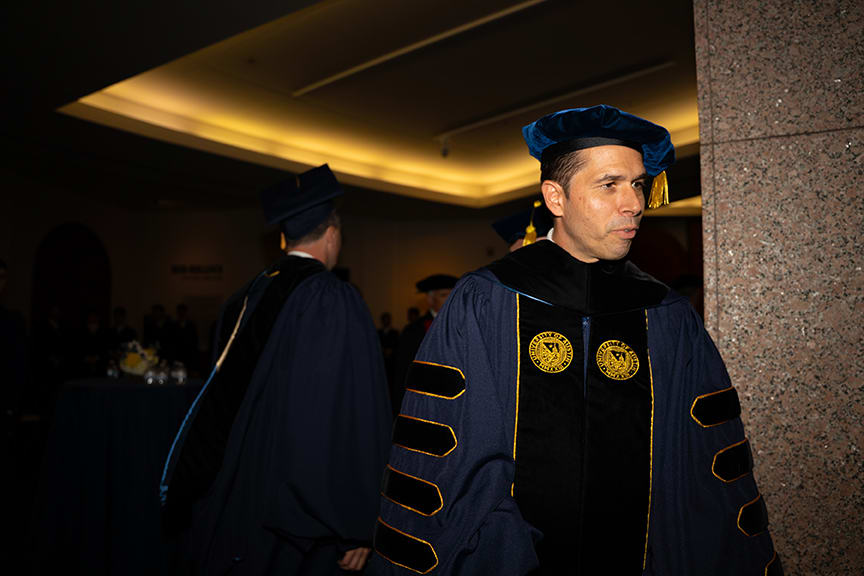Blacks are no longer America's most economically divided racial group
America's income inequality is widening, and there's one group that's experiencing its impact more than any other: Asian-Americans.
Asian-Americans have displaced blacks as the most economically divided racial group in the country, according to a new study from the Pew Research Center, which based its analysis on data from the U.S. Census Bureau from 1970 to 2016.
Income inequality has transformed America, with economists such as Stanford University's Raj Chetty finding that the country is losing out on generations of innovators and achievers because to rising inequality.
The widening gap between rich and poor Asians is due to a number of factors, with immigration playing a key role, Pew said.
"Immigrants accounted for 81 percent of the growth in the Asian adult population from 1970 to 2016, and the foreign born share among Asians increased from 45 percent to 78 percent in this period," Pew said. "One result was that the share of new Asian immigrants working in high-skill occupations decreased from 1970 to 1990, and the share working in low-skill occupations increased."
Asians in the top 10 percent of the income distribution earn as much as 10.7 times as those in the bottom 10 percent, the widest income ratio among all races. Blacks, the group with the second widest income gap, have a ratio of 9.8.
That compares with a ratio of 8.7 for all Americans. In dollar figures, that means the top 10 percent of American households earned $109,578 annually in 2016, compared with $12,523 for those in the bottom 10 percent.
Income inequality has widened across all racial groups since 1970, Pew noted. In 1970, the richest 10 percent of American households earned 6.9 times that of the lowest 10 percent, while the ratio for Asians stood at 6.1.
The Asian experience
The Asian population in the U.S. is divided by income and education, which is linked to their country of origin, Pew said. Some groups are more likely to have earned a college degree, such as people who are of Indian descent or have immigrated from India. More than 7 out of 10 Indians have a college degree, while the group's median household income is $100,000.
By comparison, fewer than 1 out of 10 people from Bhutan or of Bhutanese descent have a college degree. The study didn't have enough data to calculate the median household income for the group, but about one-third of Bhutanese live in poverty in America, Pew said.
Overall, Asians have the highest median income out of all racial groups in America, at $51,288. That's about 7 percent more than the median household income for whites, and about two-thirds more than what black and Hispanic households earn.
Black families: Erasing gains
African-Americans enjoyed big income gains in the decades following 1970, with their share of median income compared with whites rising from 59 percent in 1970 to 69 percent in 2000.
But since 2000, blacks have lost ground, Pew said. By 2016, black income had fallen to 65 percent of the median for whites.
"The reversal for blacks this century may reflect the impact of the Great Recession of 2007-09," Pew said. "Although no group was immune to the effects of the recession, the unemployment rate for blacks spiked to a high of 16.8 percent in March 2010, meaning one-in-six blacks in the workforce did not have a job."
Hispanics lost income ground between 1970 to 2000. About half of the growth in the Hispanic adult population since 1970 is due to immigration, and those newer arrivals tend to earn less and have fewer education credentials or skills, Pew said.
About one out of 10 Hispanic immigrants have a college degree, compared with three out of 10 Americans, Pew noted. It added, "The result is that Hispanic immigrants streamed into the lower rungs of the income ladder at a faster rate than into the higher rungs."




